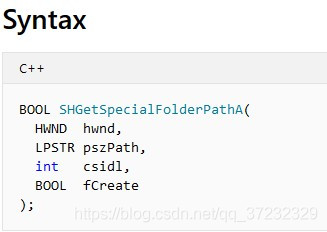一. 官网说明
1.1 v$session_longops
V$SESSION_LONGOPS displays the status of various operations that run for longer than 6 seconds (in absolute time). These operations currently include many backup and recovery functions, statistics gathering, and query execution, and more operations are added for every Oracle release.
To monitor query execution progress, you must be using the cost-based optimizer and you must:
(1)Set the TIMED_STATISTICS or SQL_TRACE parameters to true
(2)Gather statistics for your objects with the ANALYZE statement or the DBMS_STATS package
-- 使用条件
You can add information to this view about application-specific long-running operations by using the DBMS_APPLICATION_INFO.SET_SESSION_LONGOPS procedure.
| Column | Datatype | Description |
| SID | NUMBER | Identifier of the session processing the long-running operation. If multiple sessions are cooperating in the long-running operation, then SID corresponds to the main or master session. |
| SERIAL# | NUMBER | Serial number of the session processing the long-running operation. If multiple sessions are cooperating in the long-running operation, then SERIAL# corresponds to the main or master session. SERIAL# is used to uniquely identify a session's objects. Guarantees that session-level commands are applied to the correct session objects if the session ends and another session begins with the same session ID. |
| OPNAME | VARCHAR2(64) | Brief description of the operation |
| TARGET | VARCHAR2(64) | Object on which the operation is carried out |
| TARGET_DESC | VARCHAR2(32) | Description of the target |
| SOFAR | NUMBER | Units of work done so far |
| TOTALWORK | NUMBER | Total units of work |
| UNITS | VARCHAR2(32) | Units of measurement |
| START_TIME | DATE | Starting time of the operation |
| LAST_UPDATE_TIME | DATE | Time when statistics were last updated for the operation |
| TIMESTAMP | DATE | Timestamp specific to the operation |
| TIME_REMAINING | NUMBER | Estimate (in seconds) of time remaining for the operation to complete |
| ELAPSED_SECONDS | NUMBER | Number of elapsed seconds from the start of the operations |
| CONTEXT | NUMBER | Context |
| MESSAGE | VARCHAR2(512) | Statistics summary message |
| USERNAME | VARCHAR2(30) | User ID of the user performing the operation |
| SQL_ADDRESS | RAW(4 | 8) | Used with the value of the SQL_HASH_VALUE column to identify the SQL statement associated with the operation |
| SQL_HASH_VALUE | NUMBER | Used with the value of the SQL_ADDRESS column to identify the SQL statement associated with the operation |
| SQL_ID | VARCHAR2(13) | SQL identifier of the SQL statement associated with the long operation, if any |
| SQL_PLAN_HASH_VALUE | NUMBER | SQL plan hash value; NULL if SQL_ID is NULL |
| SQL_EXEC_START | DATE | Time when the execution of the SQL started; NULL if SQL_ID is NULL |
| SQL_EXEC_ID | NUMBER | SQL execution identifier (see V$SQL_MONITOR) |
| SQL_PLAN_LINE_ID | NUMBER | SQL plan line ID corresponding to the long operation; NULL if the long operation is not associated with a line of the execution plan |
| SQL_PLAN_OPERATION | VARCHAR2(30) | Plan operation name; NULL if SQL_PLAN_LINE_ID is NULL |
| SQL_PLAN_OPTIONS | VARCHAR2(30) | Plan operation options; NULL if SQL_PLAN_LINE_ID is NULL |
| QCSID | NUMBER | Session identifier of the parallel coordinator |
1.2 SQL_TRACE
| Property | Description |
| Parameter type | Boolean |
| Default value | false |
| Modifiable | ALTER SESSION, ALTER SYSTEM |
| Range of values | true | false |
SQL_TRACE enables or disables the SQL trace facility. Setting this parameter to true provides information on tuning that you can use to improve performance.
Caution:
Using this initialization parameter to enable the SQL trace facility for the entire instance can have a severe performance impact. Enable the facility for specific sessions using the ALTER SESSION statement. If you must enable the facility on an entire production environment, then you can minimize performance impact by:
(1). Maintaining at least 25% idle CPU capacity
(2). Maintaining adequate disk space for the USER_DUMP_DEST location
(3). Striping disk space over sufficient disks
Note:
The SQL_TRACE parameter is deprecated. Oracle recommends that you use the DBMS_MONITOR and DBMS_SESSION packages instead. SQL_TRACE is retained for backward compatibility only.
SQL_TRACE 已经被弃用了.
1.3 TIMED_STATISTICS
| Property | Description |
| Parameter type | Boolean |
| Default value | If STATISTICS_LEVEL is set to TYPICAL or ALL, then true If STATISTICS_LEVEL is set to BASIC, then false |
| Modifiable | ALTER SESSION, ALTER SYSTEM |
| Range of values | true | false |
TIMED_STATISTICS specifies whether or not statistics related to time are collected.
Values:
true: The statistics are collected and stored in trace files or displayed in the V$SESSTATS and V$SYSSTATS dynamic performance views.
false: The value of all time-related statistics is set to zero. This setting lets Oracle avoid the overhead of requesting the time from the operating system.
Starting with release 11.1.0.7.0, the value of the TIMED_STATISTICS parameter cannot be set to false if the value of STATISTICS_LEVEL is set to TYPICAL or ALL.
On some systems with very fast timer access, Oracle might enable timing even if this parameter is set to false. On these systems, setting the parameter to true can sometimes produce more accurate statistics for long-running operations.
二. 相关测试
SYS@anqing2(rac2)> show parameter sql_trace
NAME TYPE VALUE
------------------------------------ ----------- ------------------------------
sql_trace boolean FALSE
SYS@anqing2(rac2)> show parameter TIMED_STATISTICS
NAME TYPE VALUE
------------------------------------ ----------- ------------------------------
timed_statistics boolean TRUE
该视图通常配合V$SESSION视图,来分析SQL运行缓慢的原因。
查询未完成操作的信息
单实例
/* Formatted on 2011/6/22 21:20:53 (QP5 v5.163.1008.3004) */
SELECT sid,
MESSAGE,
start_time,
last_update_time,
time_remaining,
elapsed_seconds
FROM V$SESSION_LONGOPS
WHERE time_remaining > 0;
RAC
/* Formatted on 2011/6/22 21:21:27 (QP5 v5.163.1008.3004) */
SELECT inst_id,
sid,
MESSAGE,
start_time,
last_update_time,
time_remaining,
elapsed_seconds
FROM GV$SESSION_LONGOPS
WHERE time_remaining > 0;
-------------------------------------------------------------------------------------------------------
Blog: http://blog.csdn.net/tianlesoftware
Email: dvd.dba@gmail.com
DBA1 群:62697716(满); DBA2 群:62697977(满) DBA3 群:62697850(满)
DBA 超级群:63306533(满); DBA4 群: 83829929 DBA5群: 142216823
DBA6 群:158654907 聊天 群:40132017 聊天2群:69087192
--加群需要在备注说明Oracle表空间和数据文件的关系,否则拒绝申请








 京公网安备 11010802041100号
京公网安备 11010802041100号